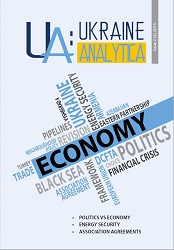
To Build a Foreign Policy Capable of Developing
Interview with Hanna Hopko, MP, Head of the Committee on Foreign Affairs of the Parliament of Ukraine
More...We kindly inform you that, as long as the subject affiliation of our 300.000+ articles is in progress, you might get unsufficient or no results on your third level or second level search. In this case, please broaden your search criteria.

Interview with Hanna Hopko, MP, Head of the Committee on Foreign Affairs of the Parliament of Ukraine
More...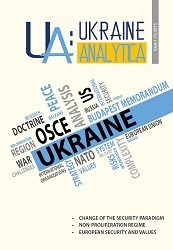
Interview with the Minister of Foreign Affairs of Ukraine Pavlo Klimkin for UA: Ukraine Analytica
More...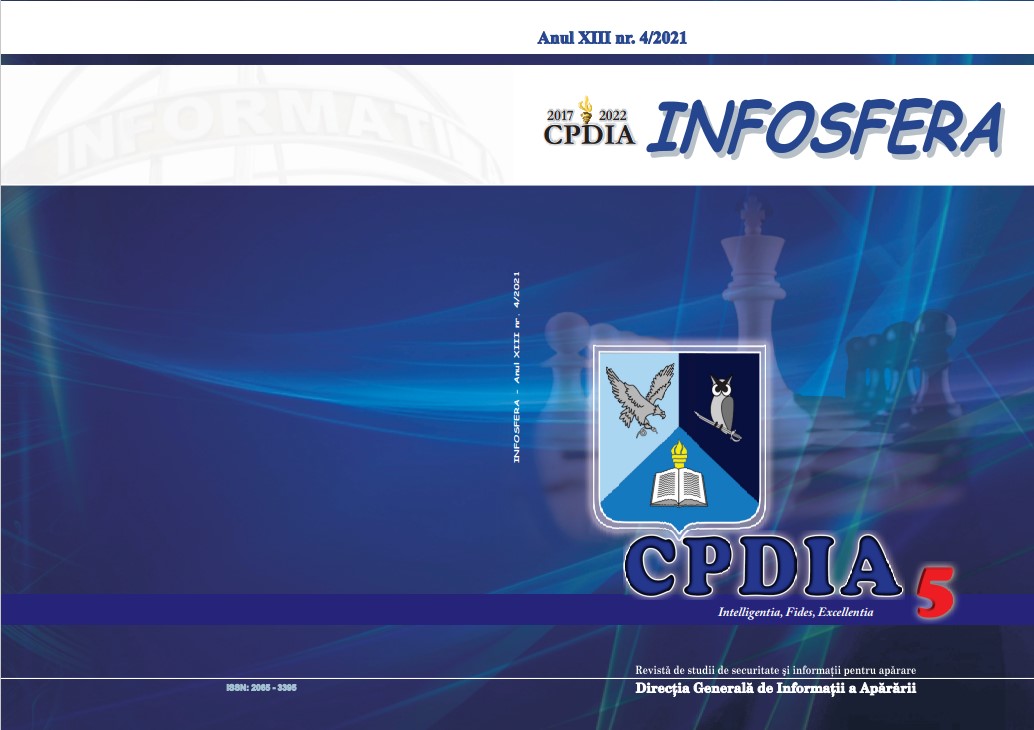
In order to reaffirm itself as an uncontested global actor, the Russian Federation aspires to „new horizons” where the „Putinist” ideology could be easily adopted by authoritarian/dictatorial elites and moves the effort’s centre of gravity towards projecting the doctrine away from Europe and into Africa, the Middle East and Asia-Pacific. In this context, the EU and NATO enlargement process in Eastern and South-Eastern Europe and the resilience consolidation of the states in the respective areas have determined the Russian Federation to reconsider their eff ort on the Western Strategic Direction (defence consolidation, harassment and interests promoting through third parties) and to capture the initiative on the South-Western Strategic Direction. The newly created and consolidated outpost (the Crimean Peninsula) was quickly transformed from a territory that was conquered, estranged, leased and then reclaimed into a stronghold on the South-Western Strategic Direction and use as a natural extension of the territorially -expansionist foreign policy of the Russian Federation Crimean Peninsula’s return to the „motherland” was followed by ample programmes meant to easily connect the Peninsula to the Russian continental land from economic, transport infrastructure and especially military standpoints. The latter was carried through overcrowding the newly acquired land with personnel and equipment.
More...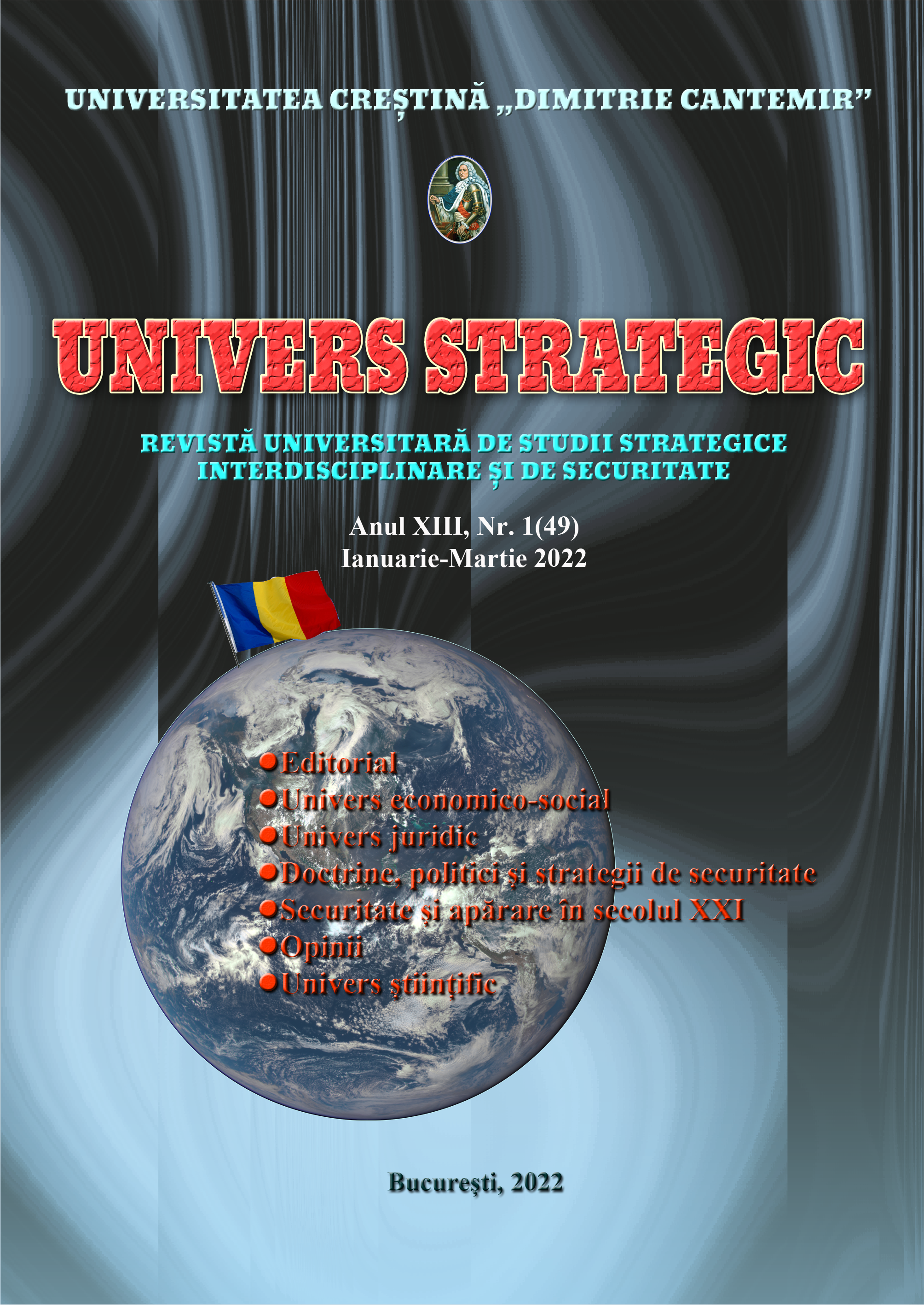
Although I was very sure that Russia would invade Ukraine, not only did I not believe that I was very sure, but I also doubted that, in the honorable 21st century, such a thing could or should be possible. it happens, at least in the mind of a sane man. I had forgotten, it seems, Korea, Vietnam, Iraq, Libya, Chechnya, Afghanistan, the explosive or explosive war in Yugoslavia, a punctual war, probably for Kosovo or who knows for what other purpose, fad, objective, geopolitical and geostrategic interest, etc. .. I had forgotten the Arab Spring, and the war in Syria, still in progress, and many, many more ... I had also forgotten the Transnistrian hybrid war. And most of all, I forgot about the differences between them. Differences, not essences.
More...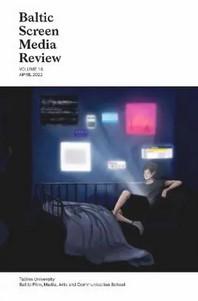
This article was written before Russia unleashed its brutal and genocidal war on Ukraine. Of course, some of our conclusions and especially reflections on the possible future outcomes have been made irrelevant by the current hostilities, the flow of millions of refugees, the unprecedented Western sanctions against Russia, and the blocking of entire social media platforms by the Russian government, which led to some Russians self-styling themselves as “digital refugees”.
More...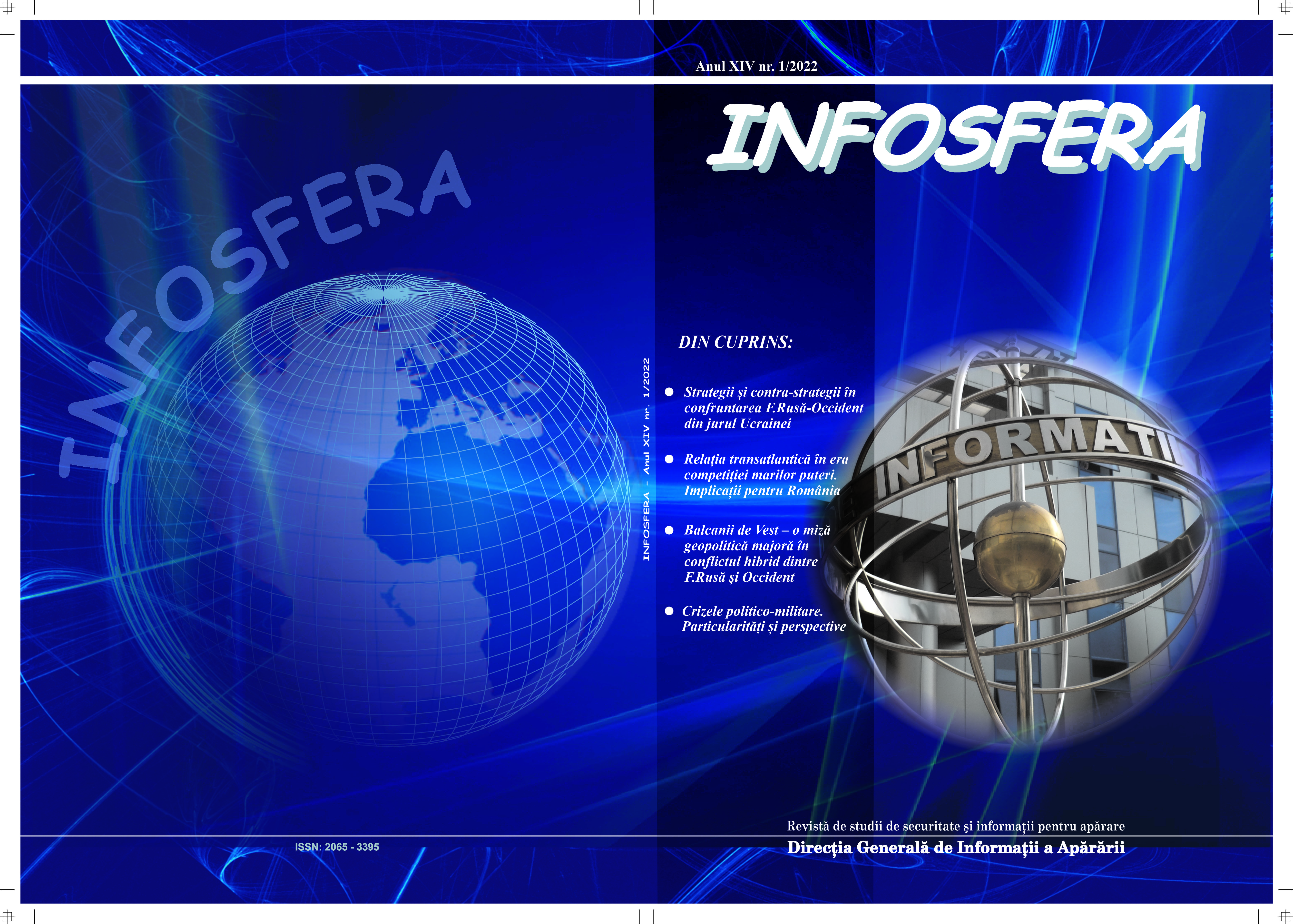
The war is ready to emerge in Ukraine. We have the full information coming from the Western officials, specially the American ones, pronounced by State Secretary Anthony Blinken in the Security Council or by the President in front of the European leaders. America has chosen to use all the instruments for deterring Russia to move to war and has even sacrifice valuable intelligence in order to show that every move is well known. So that it wasn’t a surprise that Friday, on 18 February, we had the announcement that Putin decided the invasion and Sunday evening that orders of action have been delivered to the Russian units, once the Belarus Russia huge snap exercise has been prolonged due to evolutions in Donbas. It is interesting to see that the information war has begun as well as the war for narratives, credibility, legitimacy, hearts and minds of the worldʼs citizens.
More...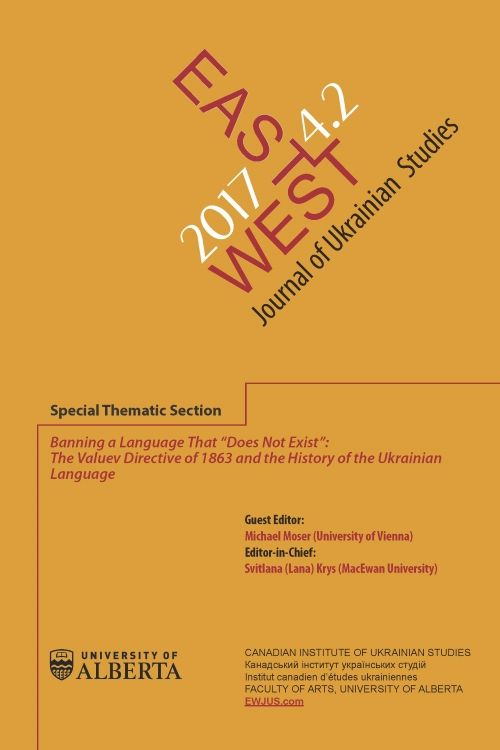
REVIEW OF: Olga Bertelsen, editor. Revolution and War in Contemporary Ukraine: The Challenge of Change. ibidem-Verlag, 2016. Soviet and Post-Soviet Politics and Society 161, general editor, Andreas Umland. 430 pp. Index
More...
REVIEW OF: Marta Dyczok. Ukraine’s Euromaidan: Broadcasting Through Information Wars with Hromadske Radio. Preface by David R. Marples, E-International Relations Publishing, 2016, www.e-ir.info/2016/03/22/open-access-book-ukraines-euromaidan-broadcasting-through-information-wars-with-hromadske-radio/. E-IR Open Access, edited by Stephen McGlinchey. vi, 103 pp. Map.
More...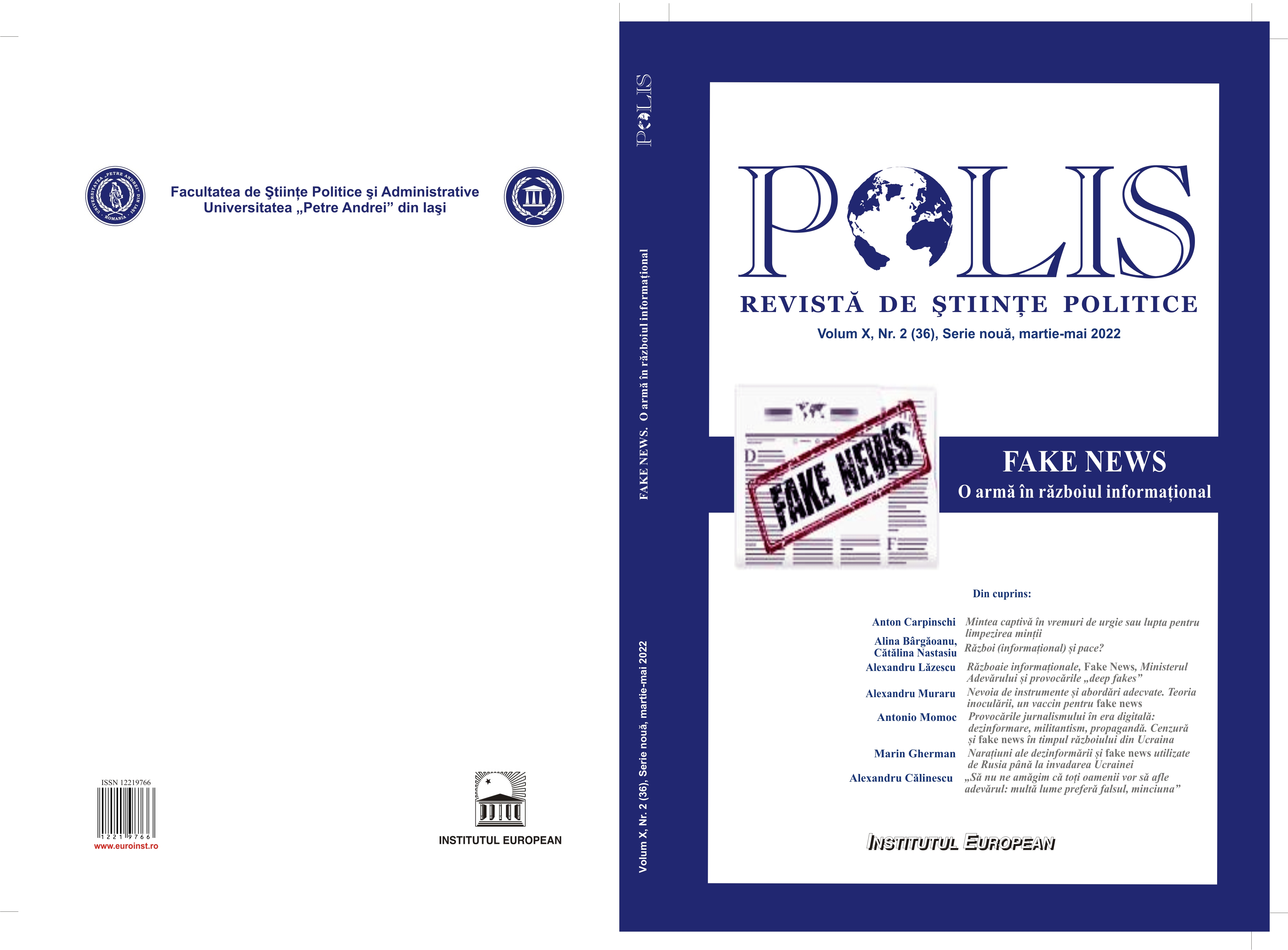
Until the invasion of Ukraine by Russia, the Russian government press and high-ranking politicians in Moscow participated in the distribution of disinformation and fake news stories, which prepared informally and mentally the aggression, called by the Kremlin a „special operation”. The study is based on weekly analyzes of the Russian-language press in Russia, Ukraine, the Republic of Moldova and Belarus, conducted between December 2020 and February 2022. It is worth mentioning the double role of false narratives distributed by the pro-Kremlin press during this period. The purpose of the disinformation was to change the perceptions of Ukrainians regarding relations with the EU and with NATO, based on sowing nostalgia for friendly relations with Russia. On the other hand, a lot of disinformation and fake news were addressed directly to the Russian public. The Kremlin continues to fund information campaigns to justify its actions against neighbouring states. A series of false narratives aimed to exonerate Russia over the Donbass conflict and the killing of civilians. Unfortunately, both European and Euro-Atlantic security strategies have so far not provided clear answers to some new phenomena such as hybrid warfare, the process of hybridization of socio-political life, the asymmetry between information attack and defence.
More...
The paper analyses the economic impact that the war in Ukraine has on the Romanian economy and the way citizens have acted when faced with a high rise in product prices. By exploring people’s behaviour, the essay finds that people did not only exhibit normally expected reactions, such as decreasing private consumption, but their actions were influenced by the ample spread of fake news and led to mass panic, queuing and buying large quantities of certain products which were erroneously believed to experience a sudden and sharp increase in price. The paper then examines potential aspects explaining why Romanians become victims of price-related disinformation, such as historical aspects, past experiences, their media diet, low trust in institutions, and the malign narratives circulating in Romania’s informational space.
More...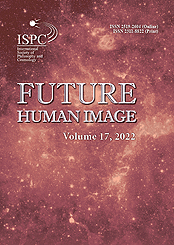
The Russian invasion of the territory of the Ukrainian state in February 2022 disturbed the existing order in the world. The hybrid nature of this war resulted in the involvement of hacktivists from the Anonymous group. Therefore, the aim of this article is to analyze the legitimacy and legality of the hacking activities undertaken by members of the Anonymous group against the Russian state. Assuming that hacking activities are illegal in the light of the law, the author proves that during the war, this type of activity in cyberspace becomes justified and is one of the tools to fight the aggressor. At the same time, this fits in with the modern concept of hybrid wars because today’s conflicts do not have the pure form of conventional actions, but are a mix of various fighting methods.
More...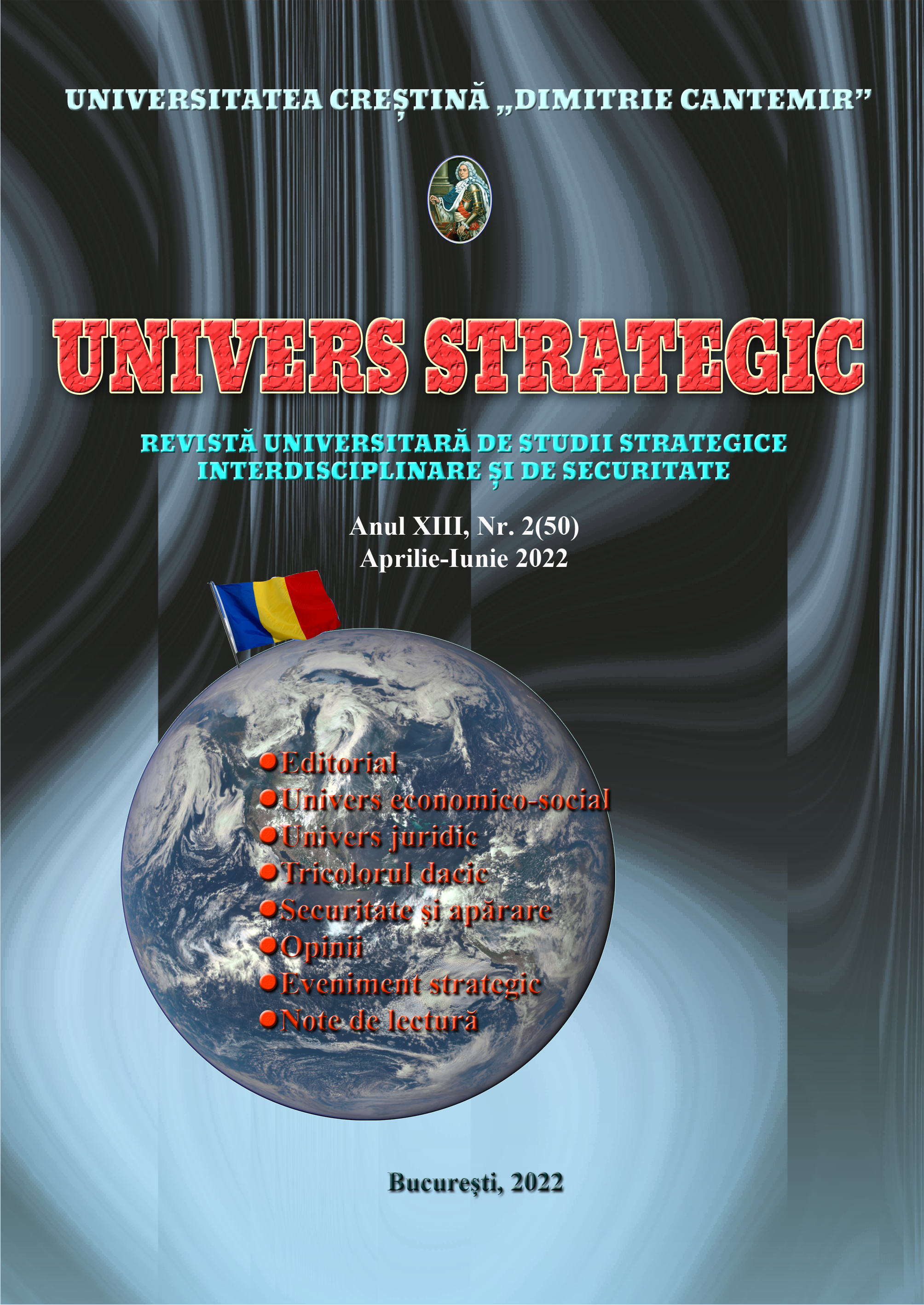
Everyone knows - or, if they don’t know, suspects - that the fratricidal geopolitical war in Ukraine did not break out suddenly and is therefore not just the madness of a dictator, as some say. There is no such thing as an opportunity for the Russian army to train for what will be worse in the future. It is very possible that Vladimir Putin did not attack Ukraine just to show Kiev, the place where Kiev Russia was founded, who is the leader.This war, in the view of those who triggered it, is not a war, but only a special operation of demilitarization and denazification of Ukraine. Why so?! Probably for the reason that Ukraine is not considered, by Moscow, a country worthy of being declared a war, but a rebellious and ungrateful component of Russia, more precisely, of the Soviet Union, which raised it to the rank of country, because it really needed a country, a country of the marginal Slavs, here, in the mouth of the wolf, that is, at its edge, on the strategic fault Black Sea - Baltic Sea.And Ukraine, in the view of the Russians, probably would not have fulfilled exactly this role.
More...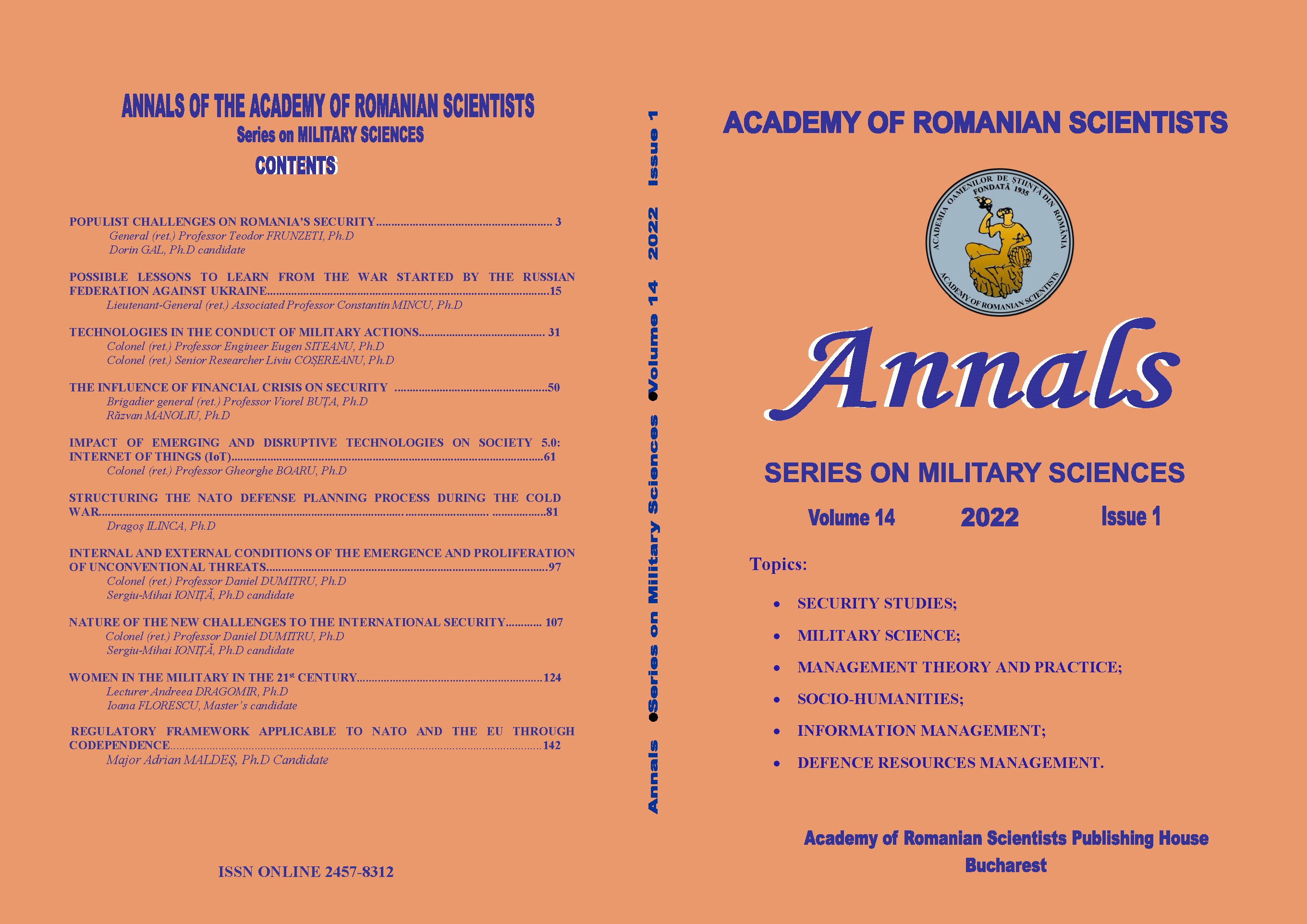
The author considers that the topic of this article is of interest to active politicians and military of all ranks.In the context of the Russian Federation’s unreasoned and unprovoked invasion of Ukraine (on 24.02.2022), the concerns of Romania and other countries, historically unlucky to found themselves in what the Russians call their “close vicinity”, have increased dramatically. The concerns get bigger as no one knows where this „vicinity” ends, in Berlin or in the Atlantic!?The paper presents some events and facts of the war’s preliminaries and outgoing, which could be used by those with responsibilities in the field of defence in Romania to draw some conclusions and generate accordingly measures.Let’s hope that NATO and the EU have gain some terms with reality and have finally understood who Putin’s Russia is and what it wants. Urgent and firm measures are needed to counter the aggressor.
More...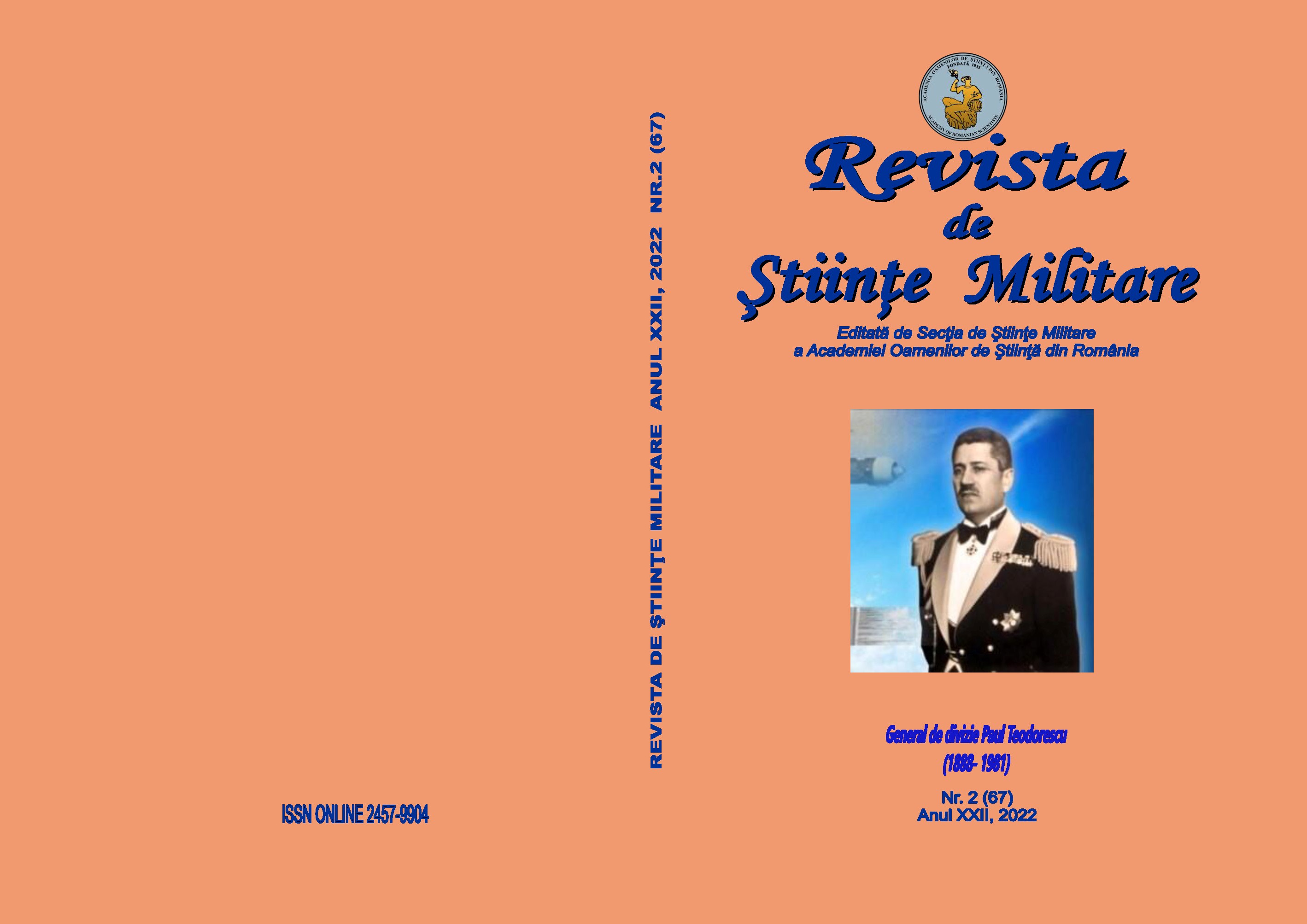
The author considers that the subject of this article is of interest to politicians and the military, of all ranks, in action.In the context of the Russian Federation's invasion of Ukraine for no reason and unprovoked (on 24.02.2022), the concerns of Romania and other countries, historically unlucky, that find themselves in what the Russians call the "close vecinity" have increased dramatically. Do we know where this „vecinity” ends, in Berlin or in the Atlantic !?This material presents some events and facts from the preliminaries of the war and from the war, from which those with responsibilities in the field of defense in our country can draw some conclusions and can generate measures accordingly.Let's hope that NATO and the EU have come to terms with reality and have finally understood who Putin's Russia is and what it wants. Urgent and firm measures are needed to counter the aggressor.
More...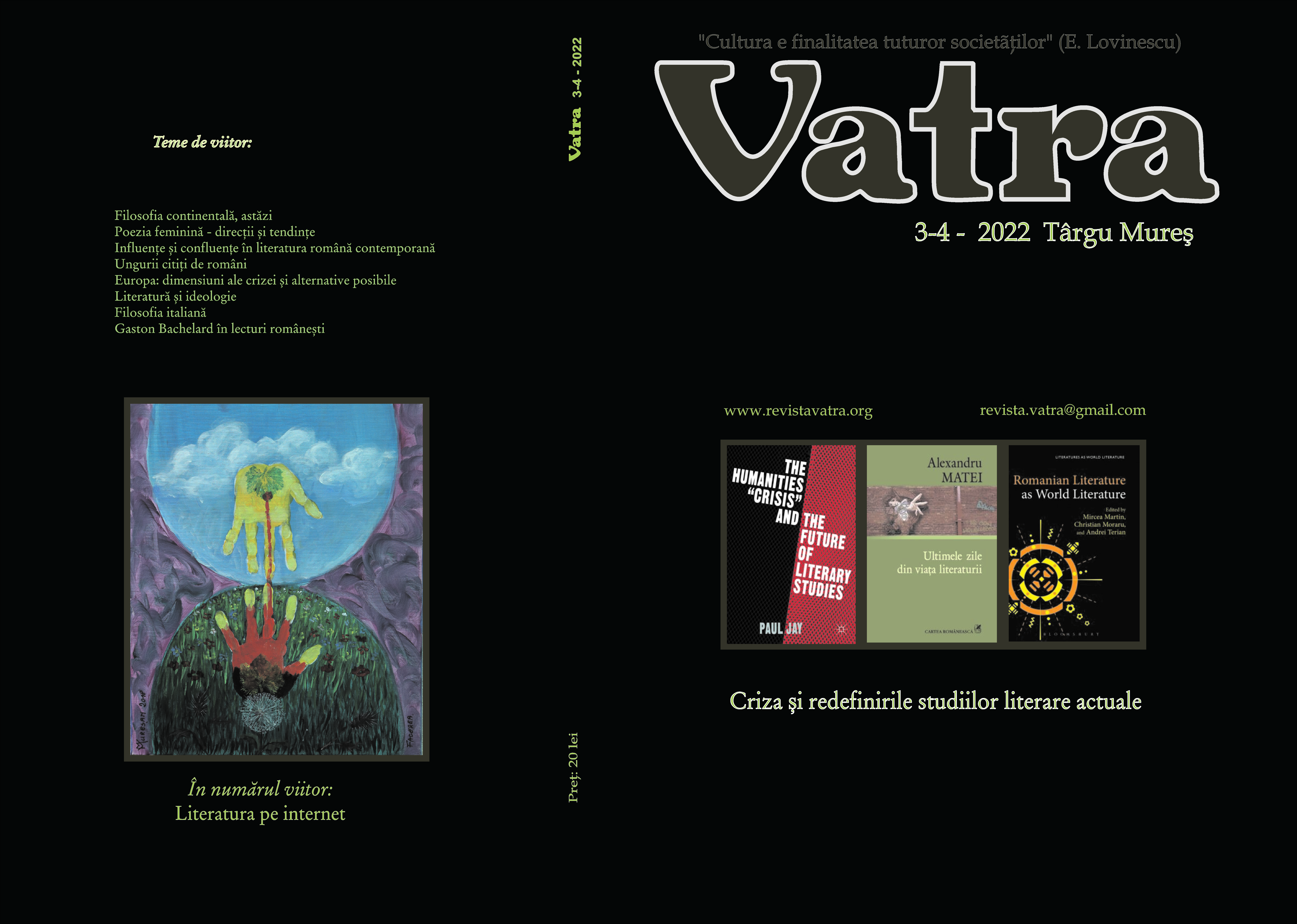
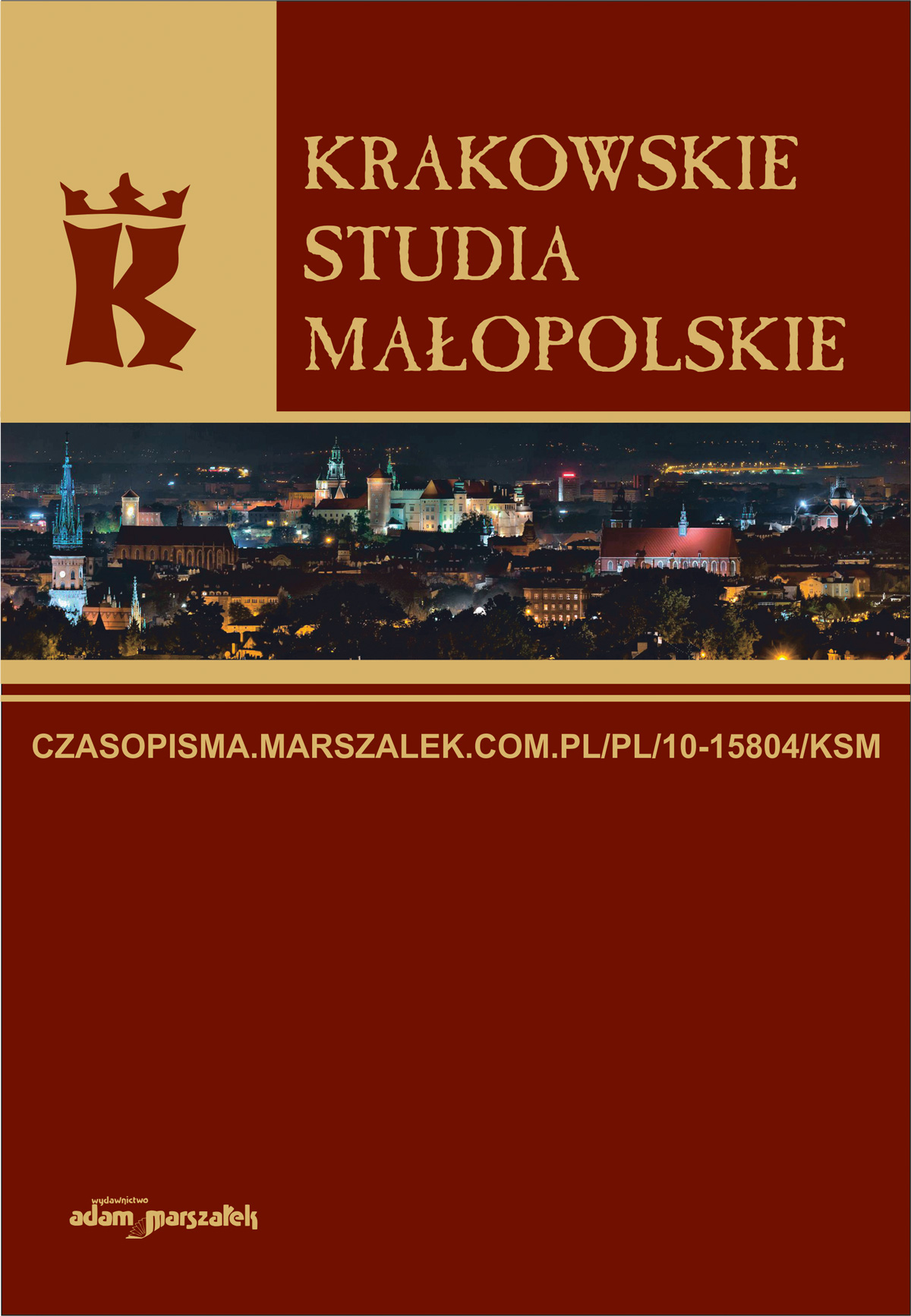
The war in Ukraine – causes and consequences aftermore than a year
More...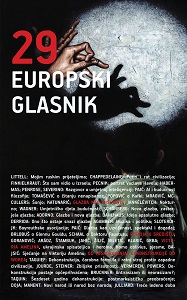
»Idem kući«, rekla je starica drhtavih ruku. Rasprava je besmislena. Sada je sve zaboravila, sve osim jedne stvari koju bi bilo korisno zaboraviti: kuće. Premda je cijeli život provela u sovjetskom carstvu, nikad nije naučila pragmatičnu vrijednost zaborava.
More...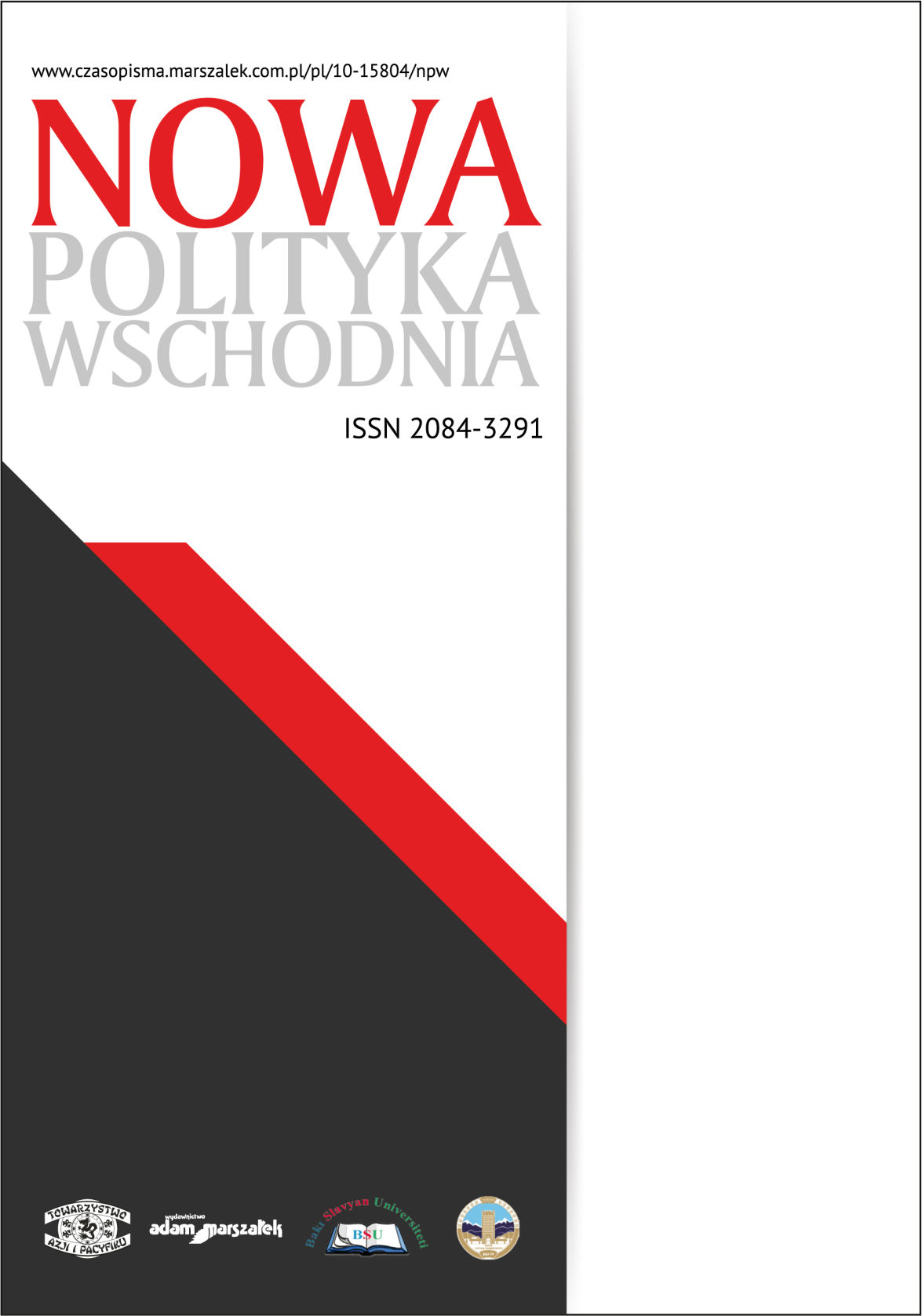
When starting operations in Ukraine, the Russian Federation set itself specific strategic goals. To determine the degree to which these goals have been achieved, they should be correlated with the course of Russian activities to date. The first phase of the Russian military operation ended in failure, and the implementation of the set strategic goals should be considered very difficult or even impossible. The initial answer may be that the war was planned and started by the Kremlin and its security services, not professional military officials. This is where the Russians ignored certain basic principles of the art of war and the concept of new generation war itself. The Russians have not designated a commander-in-chief in the Ukrainian theater of war.
More...
Today’s world, with the ongoing war in Ukraine, shows that conflicts, both armed and low-intensity, are directed not only at killing and conquering territory, but also at destabilising state functions and exacerbating social disputes. The aim is to weaken the morale of enemy populations and to lower their sense of security. Combat and everyday traumatic situations negatively affect soldiers and civilians, their attitudes or behaviour. This article attempts to present the changes in the feeling of security of Ukrainians in the years 2014 – 2023 during the war with the Russian Federation. The author presents the views of renowned experts and research on the phenomenon. He identifies the factors influencing the lowering or strengthening of the sense of security during the ongoing conflict. He emphasises that the sense of security translates into the will not only to fight and win, but also to survive and thrive.
More...